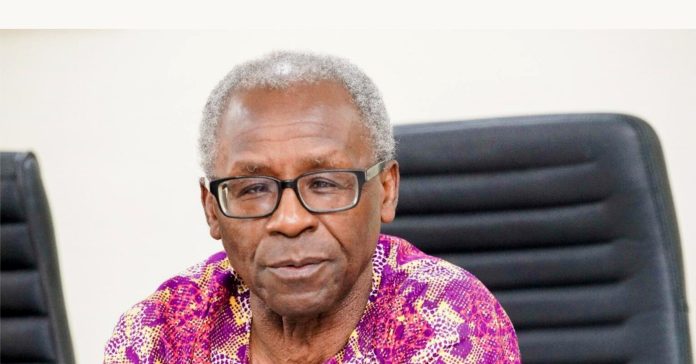A leading virologist, and former President of the Nigerian Academy of Science, Prof. Oyewale Tomori, has warned that the country is at a critical juncture in healthcare delivery.
Tomori said this in an interview with News Agency of Nigeria (NAN), on Sunday in Abuja, while commenting on the Mpox outbreak.
The Virologist underscored the urgent need for improving disease surveillance, enhancing laboratory support, and finalising plans to produce vaccines locally to contain outbreaks like mpox. He stressed the importance of raising awareness about the diseases plaguing the country while fully engaging and empowering communities in surveillance efforts.
“A balanced integration of these aspects of disease control and response is crucial for national preparedness for controlling mpox and, also, for responding to other current and future disease outbreaks,” he said.
He said that Nigeria’s ability to effectively combat emerging infectious diseases hinged on a robust surveillance systems.
“The foundation for controlling any disease, including mpox, is surveillance. Eternal vigilance is the price of liberty from any disease outbreak.
“Without early detection and monitoring, we will always play catch-up, running helter-skelter like decapitated chickens after rampaging diseases. “For the good health of our people and our national health security, that is not a position we can afford to be in,” he said. He described the ongoing upsurge of mpox in the Democratic Republic of Congo, where inadequate surveillance has led to the spread of the disease to neighboring countries, as a cautionary tale for Nigeria.
“Effective disease control requires the integration of several capabilities: rapid detection, reporting, laboratory confirmation, isolation and treatment of cases.
“Proper data management allows us to plan and implement an appropriate response, limiting the spread of cases and preventing a national, continental, or international emergency,” he said.
Tomori said that many African countries had the necessary human health workforce to prevent and control outbreaks.
He, however, criticised governments for failing to provide sustained funding to create and maintain an enabling environment for health workers.
“Instead of building on our strengths, our experienced health workers, governments have underfunded public health systems and turned around to beg foreign governments and agencies for vaccines. “We forget that with effective surveillance, we can prevent outbreaks that become international concerns, reducing the need for vaccines,” he said.
According to him, we are far from being able to produce human vaccines locally, despite past efforts. (NAN)


